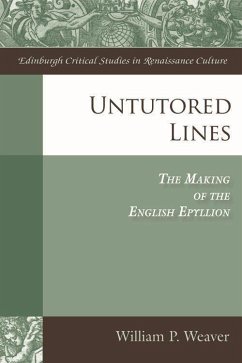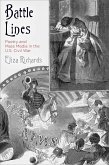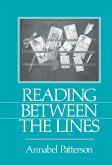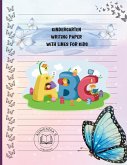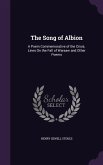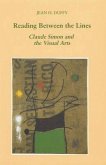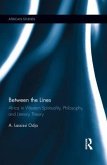William Weaver's book is a learned contribution to the growing reinvestigation of humanist pedagogy. He draws much-needed attention to an under-examined, but influential, school text - Aphthonius's Progymnasmata - in ways that deepen our understanding of the connection between rhetorical training and masculinity in Ovidian minor epics. Lynn Enterline, Vanderbilt University "This book offers a highly original rewriting of the so-called minor epic in the Renaissance, linking it to the rite of passage in the humanist school while offering arresting observations on everything from Shakespearean sources to the reception of Ovid in the English Renaissance. A must read for historians of rhetoric, education, and early modern literature." Craig Kallendorf, Texas A&M University AUTHOR & SERIES EDITOR APPROVED (do not adjust) Edinburgh Critical Studies in Renaissance Culture Series Editor: Lorna Hutson These original interpretations of Renaissance culture focus on literary texts in English and in a range of vernacular languages. They also deal with the reception and transformation of the Greco-Roman literary, political and intellectual heritage. Untutored Lines: The Making of the English Epyllion William P. Weaver A compelling cultural reinterpretation of humanist discourses of boyhood The English epyllion, the highly erotic mythological verse that swept the London literary scene in the 1590s, is as much about rhetoric as about sex. So argues William Weaver in this fascinating study of Renaissance education and poetry. Rhetoric, moreover, is erotic. Far from being merely formal, rhetoric is the key to deciphering the cultural meanings of an enigmatic genre. Weaver attends to one of the epyllion's defining dramas: boys in transition to adulthood. Whereas recent studies of the epyllion have posited sexuality as the primary, even exclusive, means of representing beautiful boys, Weaver discovers that Renaissance male sexuality itself is an effect of a disciplinary

